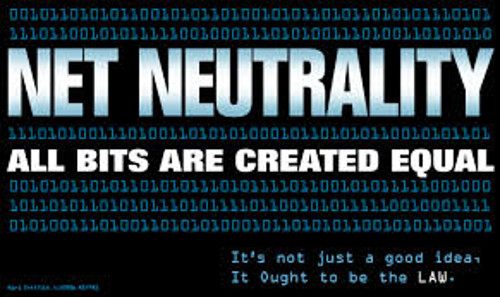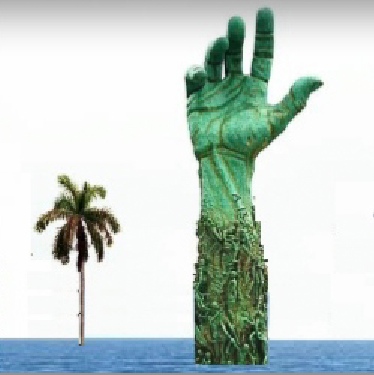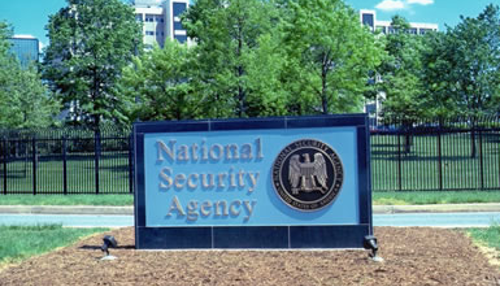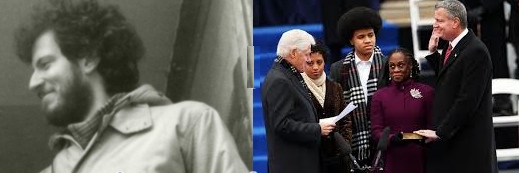The week before last, the District of Columbia Federal Appeals Court handed down an unsurprising decision that, if applied aggressively, would destroy the Internet as we know it. It concerns the term most of us have heard, but many don’t understand: Net Neutrality.
Net Neutrality is the principle that service providers –the people who actually provide the connections to the Internet, like Verizon and Comcast — can’t discriminate in the delivery of content or provision of access based on user, content, site, platform, application, type of attached equipment, and modes of communication. If you go on-line, you can reach everything anyone else can. It’s been law since 2010, mirroring the growth in popularity of high-speed Internet, and the telecommunications companies have been fighting it since then.
 The poster says it all!
The poster says it all!
Essentially, the court’s recent decision ruled that the Federal Communications Commission does not have the standing to enforce Net Neutrality on Internet high-speed (or broadband) providers. So, as of now, there is no Net Neutrality and that has caused a major pushback among media and activists who are alternately frightened, shocked and downright angry at the court, the corporations and, mainly, the FCC.
But what has gone largely unnoticed or at least uncommented is that the court decision implicitly gives the FCC enhanced power over Internet functioning without any oversight or restraint. In short, they took away our freedom and replaced it with greater government control.
This is the the most serious blow ever to Internet freedom and the political work we do on it. To figure out how we fix this, we need to understand how we got here and that’s a complicated and sometimes apparently self-contradictory lesson in the problems of putting politically-connected, unprincipled operatives in charge of your communications policies. It also demonstrates how huge corporations can push the government around and how a government agency can seem to lose power while actually gaining completely control.
Finally, it makes clear that, if the Internet’s role is to be preserved, access to it must treated as a human right and must be taken over by elected governments or agencies under public oversight. In short, it’s time to de-privatize the Internet and that’s probably the only way a free Internet is going to survive.









